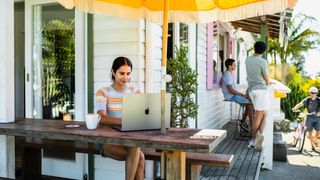Online listings
There are many other websites where you can list your product online for free. Extra listings will increase your presence online, increase your search engine optimisation and help drive more business to your website.
Get Connected
Get Connected is Destination NSW’s free website membership program. Simple and easy to use Get Connected membership is open to all tourism operators within NSW. Showcase your tourism products on Destination NSW’s consumer sites sydney.com and visitnsw.com and reach more than two million potential visitors a month. Powered by the Australian Tourism Data Warehouse (ATDW-Online) platform, NSW tourism operators can list their products on sydney.com and visitnsw.com, which deliver over six million leads to NSW industry partners each year.
By listing your tourism business or event Program, your product will be made available to over 70 local and national Australian Tourism Data Warehouse distributor partners.
CLICK HERE TO REGISTER NOW
For further assistance, please contact the Get Connected Support Desk on 1300 655 077 or getconnected@dnsw.com.au
Review site listings
Consumers increasingly trust online consumer opinions and are using review sites to help plan their trips. Business listings on review sites can enhance your business’s reputation and have a positive impact on attracting visitors.
Review site listings are a free, effective way to promote your business. Some of the key sites are:
- TripAdvisor
- Google Business Profile
- Bing places for business
- Facebook business page
- Yelp
Reviews are also made through booking platforms and distribution partners such as: booking.com and Viator.
Like social media, it is important to consider which review websites your customers are using, for example Yelp is popular in the American market.
Ensure that you have a business listing on the key review sites that your potential customers use:
- Claim your business listing: optimise it with a business description and images
- Encourage your customers to write a review
- Monitor your reviews and respond appropriately
- Use any feedback to make improvements in your business.
When you provide memorable experiences for your customers that exceed their expectations, this increases the chances they will tell the world about your business. Find out more about standing out from the crowd and exceeding customer expectations.
With so many review sites available to consumers, consistently monitoring your online reputation can be a time-consuming task. To help you stay on top of your reviews across multiple sites, consider investing in a review management platform, which can help promote your business and capture any negative customer experiences.
Google listings
Search engines are a popular tool for users to begin their online research. Google is the most popular search engine with hundreds of millions of searches every day so it is a good idea to ensure your business is listed correctly with Google.
Setting up a Google Business Profile will get you listed with Google Search and Google Maps. You can create a new listing or claim an existing listing here.
Online listing tips
- Be consistent, especially with your name, address, website and phone number
- Know where you are listed and keep a record of your listings
- Use relevant images and videos
- Optimise them with keyword-rich descriptions
- Link your listings to your website and social media pages
- Keep them up to date
Want to learn more about digital marketing?
There is lots of information online to help you keep up-to-date with effective digital marketing tools, such as Google Garage. You may also find a digital workshop near you with Business Connect, or you can seek professional help from a digital marketing agency.
READ NEXT: Guide to offline marketing
